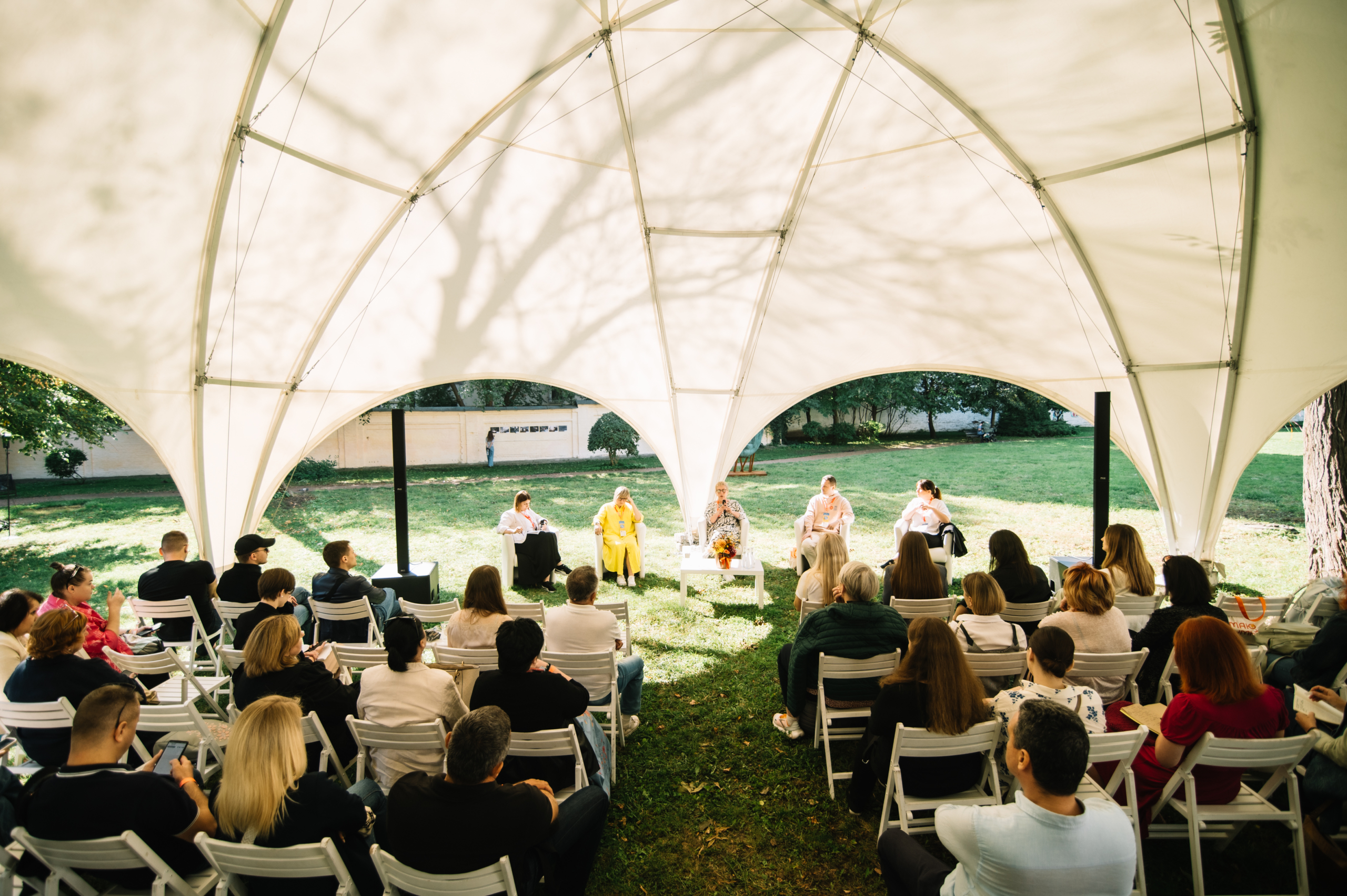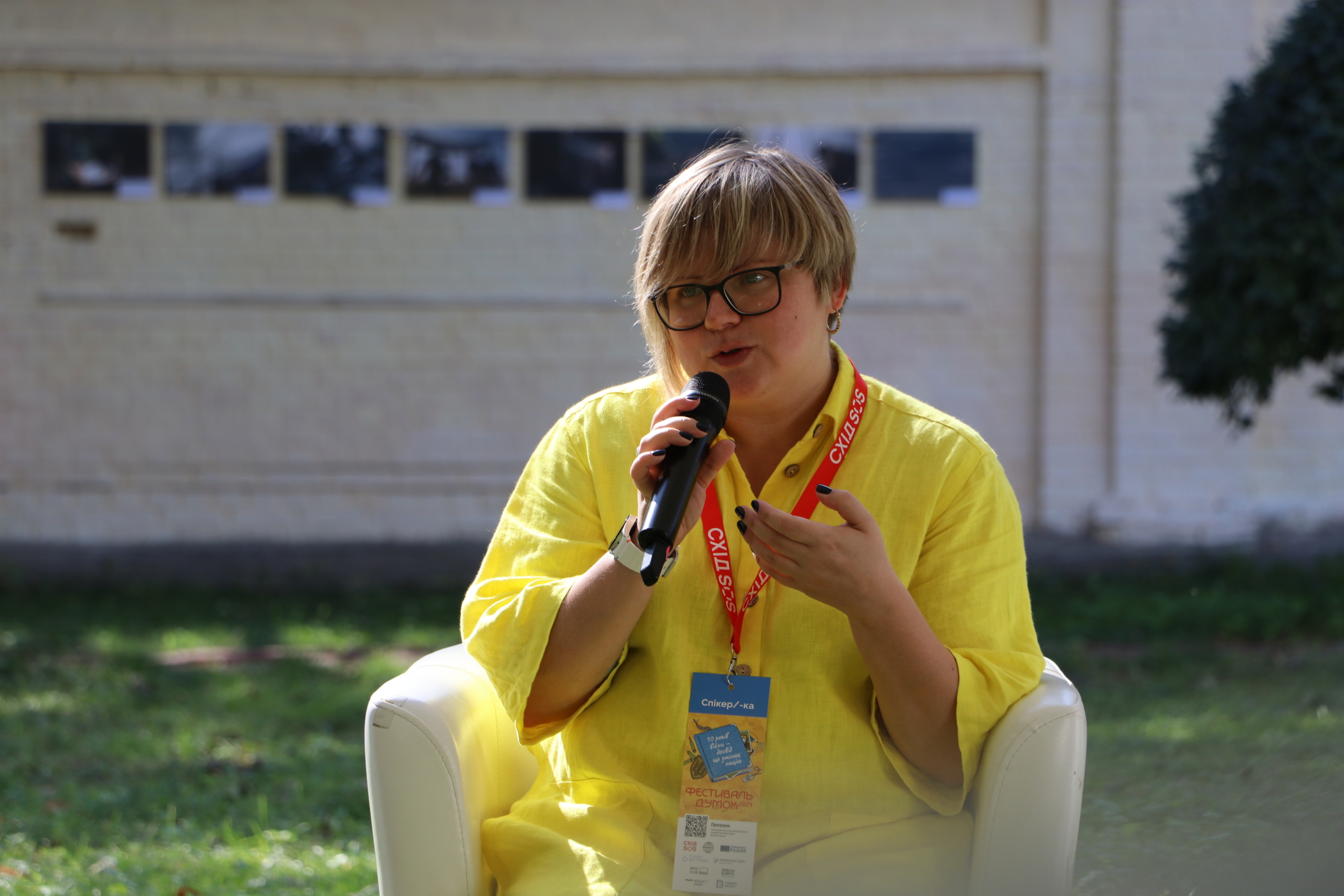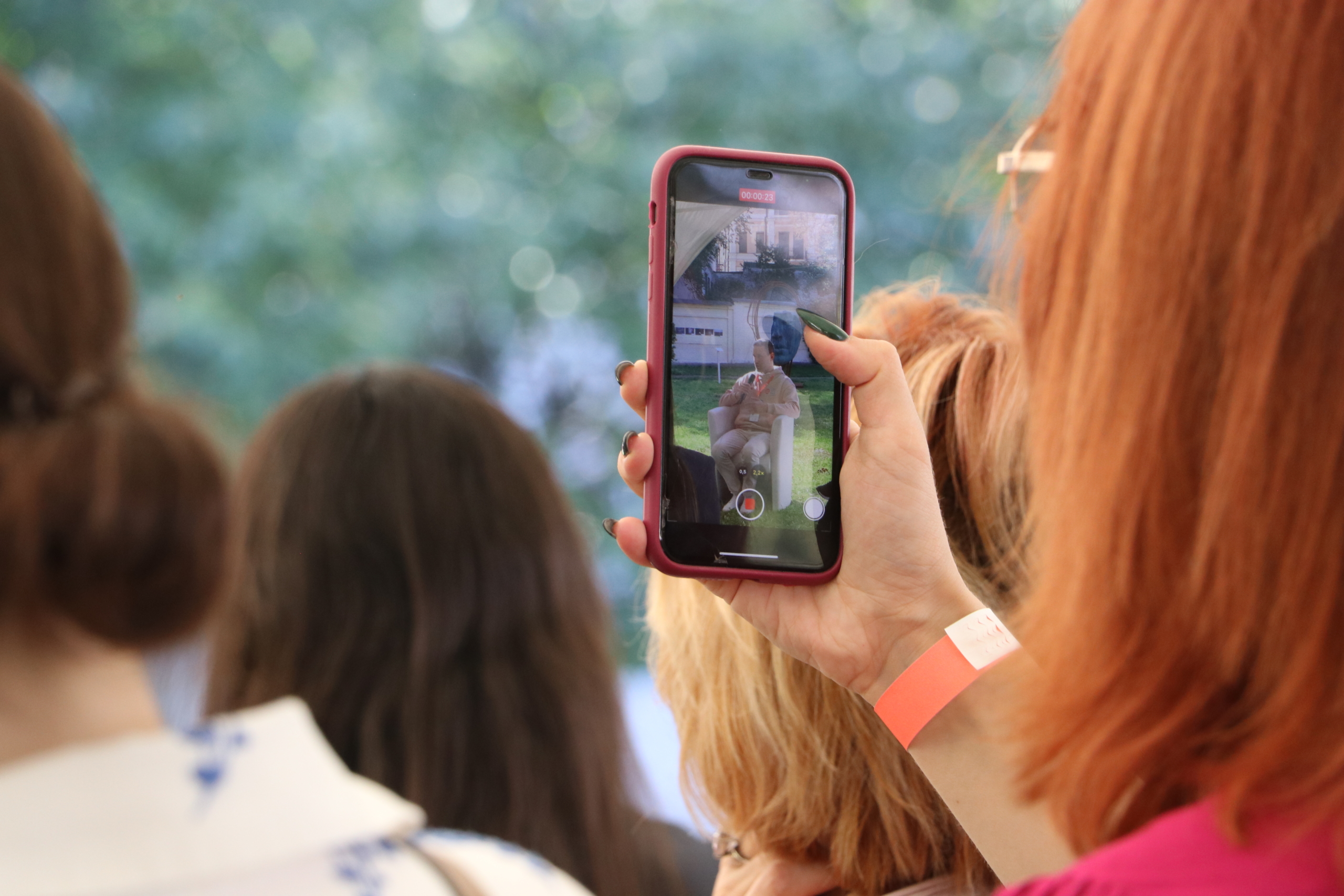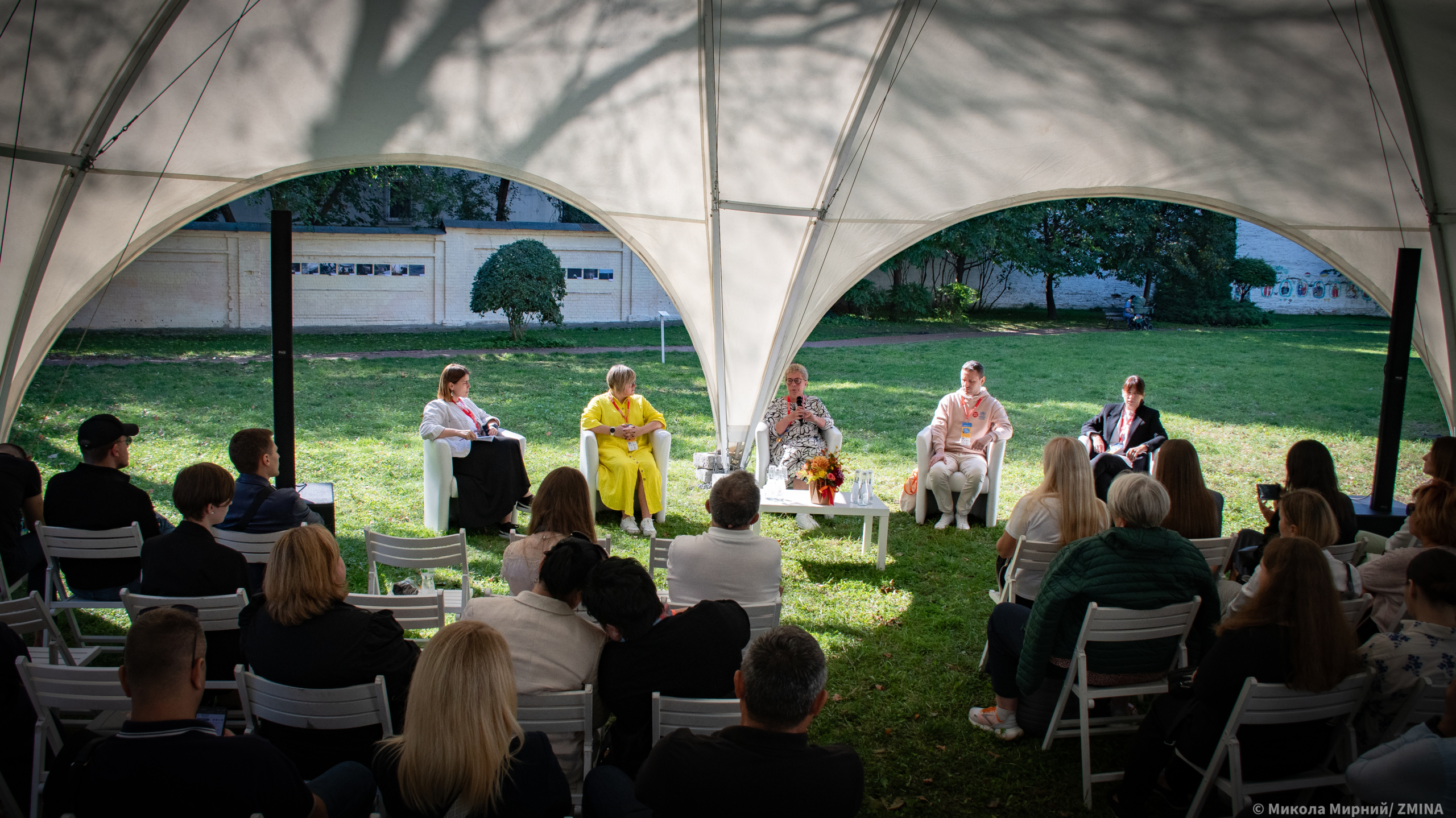How not to lose faith after ten years of war – opinions of human rights defenders
Ukrainian society has been in a gruelling war for more than ten years, which has affected all aspects of life. The constant threat to security, the loss of homes and loved ones force people to adapt to new conditions and try to move on. Human rights defenders, activists and volunteers have been making great efforts to support the affected people all these years. They record numerous cases of human rights violations, war crimes and the consequences of the humanitarian crisis. Such living conditions can often lead to disappointment and general fatigue, to a loss of faith that Ukrainians will get their people back from Russian occupation.
 Photo: Festival of Thoughts – 2024
Photo: Festival of Thoughts – 2024On September 21, human rights defenders discussed within the framework of the Festival of Thoughts – 2024 on how not to despair in the conditions of a long-term war.
According to Alena Lunova, the Advocacy Director of the Human Rights Centre ZMINA, every person who works with the consequences of the war in the public sector has their own motivation to continue working despite everything. For Alena Lunova, this is a return to her native Crimea, from which she had to leave after its occupation.
“My colleagues and I are working on the topic of reintegration, in particular, at the state level, so that the policy of reintegration is more humane and takes into account the interests of people who lived in the occupation. And we should be motivated in this work by the fact that we are the ones who have to do it, that is, people who are personally involved and who are in pain. We have a duty to work on the reintegration of our territories because we have direct contact with people who left the occupation or stayed there for their own reasons. We have to become their voice,” Lunova said.
 Alena Lunova
Alena LunovaOleksii Tilnenko, Head of the Board of the NGO “CrimeaSOS”, added that after many years of work, in particular, on the topic of reintegration, human rights defenders cannot stop their work, because the biggest challenges are still ahead – after the de-occupation of the territories:
“Russia has been preparing for the occupation for many years, it has been planning it. And therefore, in the process of de-occupation, we cannot afford such a luxury that the de-occupation takes place chaotically, with corresponding negative humanitarian consequences, consequences for human rights, for security, for the lives of people in the occupied territory. That is why the public sector is engaged in ensuring that the reintegration policy is appropriate and preserving the ties of people in the occupation.“
Deputy Permanent Representative to Crimea Olha Kuryshko spoke about the people who remained in the occupation. Ukrainians in occupied Crimea are limited in their access to information from mainland Ukraine and cannot receive help. Therefore, according to Kuryshko, the state should maintain contact with people under occupation, in particular, through the functioning of state institutions and military administrations that have moved from Crimea.

“Relocated institutions must work, because they are responsible for people in the occupation and remain the link between the state and our citizens in the occupied territories,” Kuryshko believes.
The Coordinator of the NGO “Donbas-SOS” Violeta Artemchuk says that people affected by the war contact the hotline of their organization with very different requests – from ways to preserve their property under occupation to finding ways to leave the occupied territories. According to Artemchuk, people’s questions indicate that they are in an information vacuum and are looking for at least some clues. At the same time, the human rights defender shared that such appeals from people, their gratitude and the results of helping these people keep her going and inspire her to work further.

For reference. The Festival of Thoughts is an annual intellectual meeting, a platform for discussing socially important issues, which was launched in 2017. A place where everyone can join discussions about what matters and get quality feedback. The event traditionally gathers opinion leaders, representatives of the government, the public sector and the international community, all conscious citizens of the country who seek to discuss interesting and important things in the life of the country.
This material was funded by UK International Development from the UK Government; the views expressed do not necessarily reflect the official position of the UK Government.
If you have found a spelling error, please, notify us by selecting that text and pressing Ctrl+Enter.















